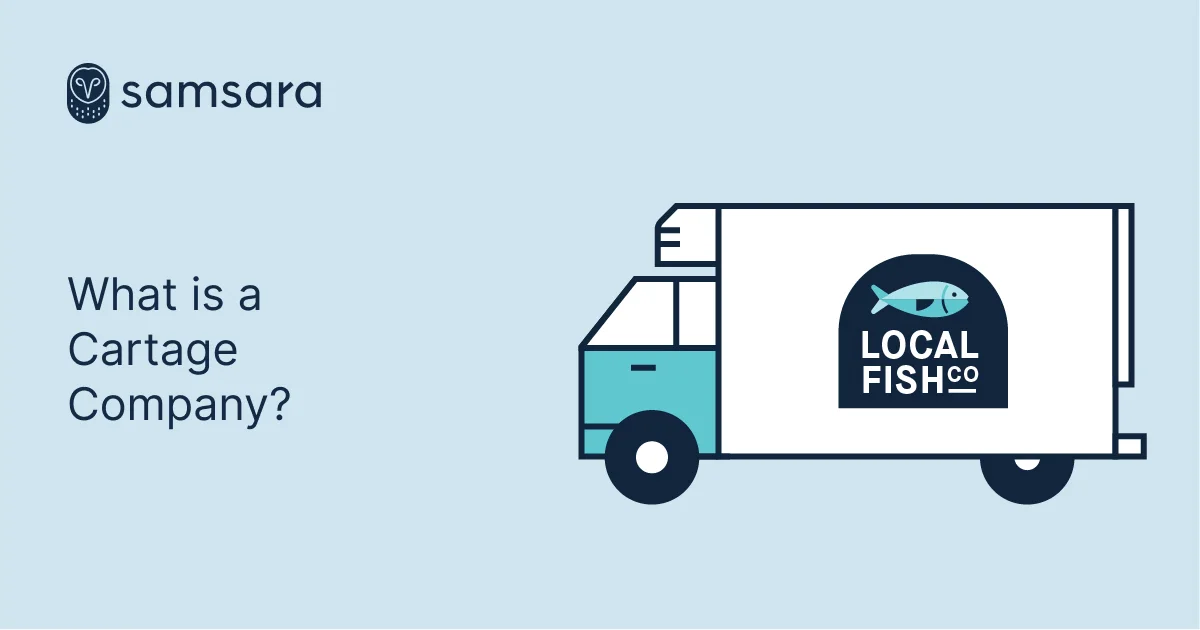What is a Cartage Company?
October 22, 2021

Get Started With Samsara
Check Our PricesKey Takeaways
In earlier times, “cartage” was the practice of transporting goods in a cart. Today the word has evolved to moving goods short distances. Cartage companies provide these freight services, hauling less-than-truckload cargo, usually for local pickups and deliveries.
What is a cartage company?
Cartage is the process of moving goods short distances. A cartage company provides cargo transportation over those distances, typically for local (within a town, city or municipality) pickups and deliveries. Usually, a small van or truck is used to deliver goods.
Cartage freight companies are used for light hauling and local carting services. Because they haul less-than-truckload (LTL) cargo and/or operate short-haul transportation, they apply a service charge called a cartage fee. Similarly, cartage adjacent stakeholders such as customs, warehousing, and shipping agents will also charge a cartage fee.
Cartage vs. drayage
Cartage is often used interchangeably with drayage. They share similarities in how cargo is transported from one place to another.
Drayage
Drayage is a specialized field that usually involves the movement of containers. Typically, truck drivers transport a shipping container’s entire content over a short distance, usually within a metropolitan area. Most of the time, drayage services involve picking up freight and delivering it to a shipping port or vice versa.
When a shipment is in drayage, a bill of lading with critical information is included. It helps the receiver and shipper to account for and track the cargo.
Additionally, container drayage has specific classifications under Intermodal Association of North America (IANA) guidelines. Cartage does not
Cartage
By contrast, cartage services involve shipping all kinds of cargo in bulk, such as food, clothing, chemicals, and more. While drayage involves the full container’s contents, cartage companies usually divide a container’s contents into smaller units. These are then shipped via road within a local area.
Instead of a bill of lading, the informational document is called “cartage advice.” This is a legal document that describes the destination and type of materials transported. Cartage advice can sometimes act as a receipt and must travel with the freight being moved. Unlike drayage, when handling cartage, a cartage agent is involved. This agent uses their paperwork and forms to identify and ship the material.
What kind of services do cartage companies offer?
Cartage trucking companies offer a variety of services. Some full service companies offer:
Standard pickup and delivery (with tractor-trailer services)
Special or expedited pickup and delivery
Climate-controlled pickup and delivery services (using reefers)
Break-bulk or deconsolidation services
Transloading and intermodal services (ports and rail ramps)
Less-than-load (LTL) and full truckload (FTL) services
Hazardous material (hazmat) transport
Liftgate and other accessorial services
Warehousing and logistics between terminals, rail hubs, and distribution centers